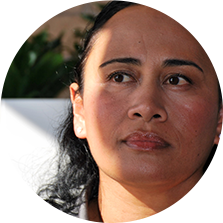
TOOLKIT FOR
WORKERS AND
WORK SEEKERS
Demonstrate personal resilience and the use of effective and safe self-care strategies in managing all dimensions of wellness throughout life transitions, including following health and safety policies.
You can demonstrate your wellness through:
- Recognizing that everyone faces challenges
- Caring for your physical, emotional, mental, social, environmental and spiritual wellbeing, seeking help when needed
- Being resilient and persistent when faced with biases, disappointments, setbacks and pressure from others, understanding that they are a normal part of life
- Recognizing that managing life transitions includes challenges, new learning, and sometimes, culture shock
- Following appropriate health and safety policies and procedures
Taylor is exhausted. She thought life would get easier once the last of her three daughters was in school but that didn’t seem to be happening. Between working full-time, trying to keep up with cooking and laundry and getting her girls to 4H activities and playdates with friends, her days are more than full. Their dad has the girls every second weekend, but Taylor spends most of that time running errands, shopping and cleaning the house. She read a blog that said moms, on average, sleep one hour less per night according to the number of children they have. In Taylor’s experience, that sounds about right!
At work one day, Taylor just burst into tears when asked if she could stay late to work on a big proposal. Not only does working late feel impossible, but she can’t even imagine the added workload if the proposal was to be accepted. She is embarrassed about not being able to hold herself together at work but just has nothing left to give.
Taylor’s boss had already been concerned about her as she seemed tense and tired so much of the time. He reminds Taylor of the Employee and Family Assistance Program (EFAP) benefits and, when she agrees that she needs help, provides her with a number to call for counselling.
Taylor finds her sessions with the counsellor really helpful. Together, they talk about the current pressures in her life and her tendency to put the needs of others before her own. They make a plan to support better self-care. She finally understands that taking care of herself isn’t selfish; in fact, it is essential if she is going to have what it takes to take care of her children, her home and her clients at work.






